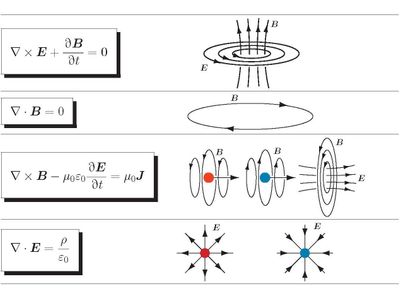See the course memo.
EI1320 Electromagnetic Theory 9.0 credits

Classical electromagnetic field theory, in forms of the relations between electromagnetic fields, charges and currents.
Information per course offering
Information for Autumn 2026 CTFYS,CTMAT programme students
- Course location
KTH Campus
- Duration
- 24 Aug 2026 - 11 Jan 2027
- Periods
Autumn 2026: P2 (3 hp), P1 (6 hp)
- Pace of study
33%
- Application code
10914
- Form of study
Normal Daytime
- Language of instruction
Swedish
- Course memo
- Course memo is not published
- Number of places
Min: 1
- Target group
- Compulsory for the Degree Program in Engineering Physics (CTFYS).
- Planned modular schedule
- [object Object]
- Schedule
- Schedule is not published
Contact
Course syllabus as PDF
Please note: all information from the Course syllabus is available on this page in an accessible format.
Course syllabus EI1320 (Spring 2026–)Content and learning outcomes
Course disposition
Course contents
- electric quantities
- Coulomb's and Gauss' laws
- conducting and dielectric materials
- energy and force in electric systems
- capacitances
- method of images and boundary value problems
- magnetic quantities
- Biot-Savart's and Ampère's laws
- magnetic materials
- electromagnetic induction
- magnetic energy and force
- inductances
- Maxwell's equations
- conservation laws for energy and linear momentum
- complex representation of electromagnetic quantities
- the propagation of plane waves in materials and scattering against interfaces
- wave propagation in transmission lines and waveguides
- radiation from mobile charges and simple antennas
- transformation of electromagnetic quantities between inertial reference frames.
Intended learning outcomes
Having passed the course, the student should be able to:
- solve parts of problems from the major part of the course content by setting up a calculation model, choose appropriate method, make proper approximations and evaluate the result
in order to be able to use the electromagnetic laws to solve basic electromagnetic field problems analytically.
To obtain higher grades, the student should be able to
- with progression in both completeness and scope, solve problems from the whole course content.
Literature and preparations
Specific prerequisites
Knowledge of mathematical methods in physics (especially partial differential equations), 4 credits, equivalent to completed course SI1200 or SF1693.
Knowledge of basic electromagnetism and wave theory at university level, 4 credits, equivalent to completed course SK1104/SH1017 or completed part LAB1 in SH1017.
Recommended prerequisites
Courses corresponding to CTFYS, year 1 and 2, in mathematics, including vector analysis and mathematical methods in physics; basic mechanics; basic electromagnetism, wave theory and circuit analysis from the course in classical physics.
Literature
Examination and completion
Grading scale
Examination
- TEN2 - Written Exam, 3.0 credits, grading scale: A, B, C, D, E, FX, F
- TEN1 - Written Exam, 6.0 credits, grading scale: A, B, C, D, E, FX, F
Based on recommendation from KTH’s coordinator for disabilities, the examiner will decide how to adapt an examination for students with documented disability.
The examiner may apply another examination format when re-examining individual students.
If the course is discontinued, students may request to be examined during the following two academic years.
Examiner
Ethical approach
- All members of a group are responsible for the group's work.
- In any assessment, every student shall honestly disclose any help received and sources used.
- In an oral assessment, every student shall be able to present and answer questions about the entire assignment and solution.
Further information
Course room in Canvas
Offered by
Main field of study
Education cycle
Supplementary information
In this course, the EECS code of honor applies, see:
http://www.kth.se/en/eecs/utbildning/hederskodex.